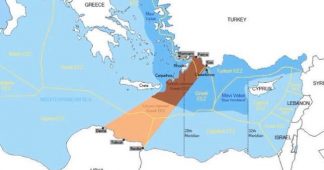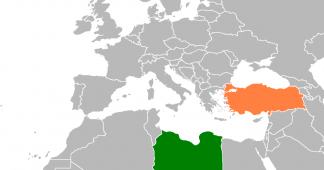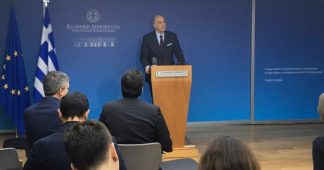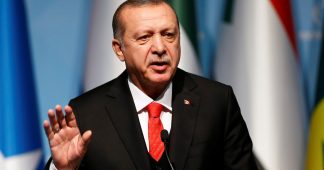Amid escalating international concern, rejection, and condemnation on the signing of the Memorandum of Understanding by the Turkish President Recep Erdogan and the Chairman of the UN-appointed and Tripoli-based Government of National Accord, Fayez al-Sarraj, on the delimitation of the maritime borders and jurisdiction areas in the Mediterranean Sea in Turkey on 28 November, reporters asked the Russian Federation Foreign Ministry Spokesperson, Maria Zakharova, on her opinion regarding the said the GNA-Turkey agreement.
[Libya, 4 December 2019] – Zakharova said that the content of the two MOUs documents, one on the demarcation of the maritime boundaries, and the second on security cooperation, has to be first legally assessed before “we familiarize ourselves with the contents, which have not so far been disclosed. However, we noted a fairly painful reaction to this signing by a number of Mediterranean states, primarily, Greece, Cyprus and Egypt,” according to the Arabic Russiya Al-Youm news platform.
“Despite the official statement by the Turkish Foreign Ministry that the Turkish-Libyan Memorandum of Understanding on the delimitation of the maritime zones does not contradict international agreements, Athens and Nicosia accused Ankara of violating the UN Convention on the Law of the Sea and infringing on their interests,” Zakharova stated.
“With regard to the memorandum of understanding in the sphere of security cooperation between Turkey and Libya, the signing gave rise to allegations of Turkey’s attempts to legitimize its military support for the Government of National Accord in Tripoli in its confrontation with the Libyan National Army, led by Field Marshal Khalifa Haftar, including by way of a blatant violation of the UN arms embargo on Libya. In turn, the UN Secretary-General’s Special Representative to Libya, Ghassan Salamé, recently suggested that the document could disrupt preparations for an international meeting to settle the Libyan conflict scheduled to be held in Berlin later this year. This raises many questions directly to Mr. Fayez Sarraj [President of the Tripoli-based Presidential Council].”
The Russian Foreign Ministry Spokesperson concluded its statement saying, “We hope that the parties to the said memorandums will show political prudence and refrain from steps that could further aggravate the already tense situation in Libya, in particular, and the Mediterranean Sea, in general.”
© Al Marsad English (2019)
Also read
Libya’s Maritime Deal With Turkey New Hurdle to Ending War











